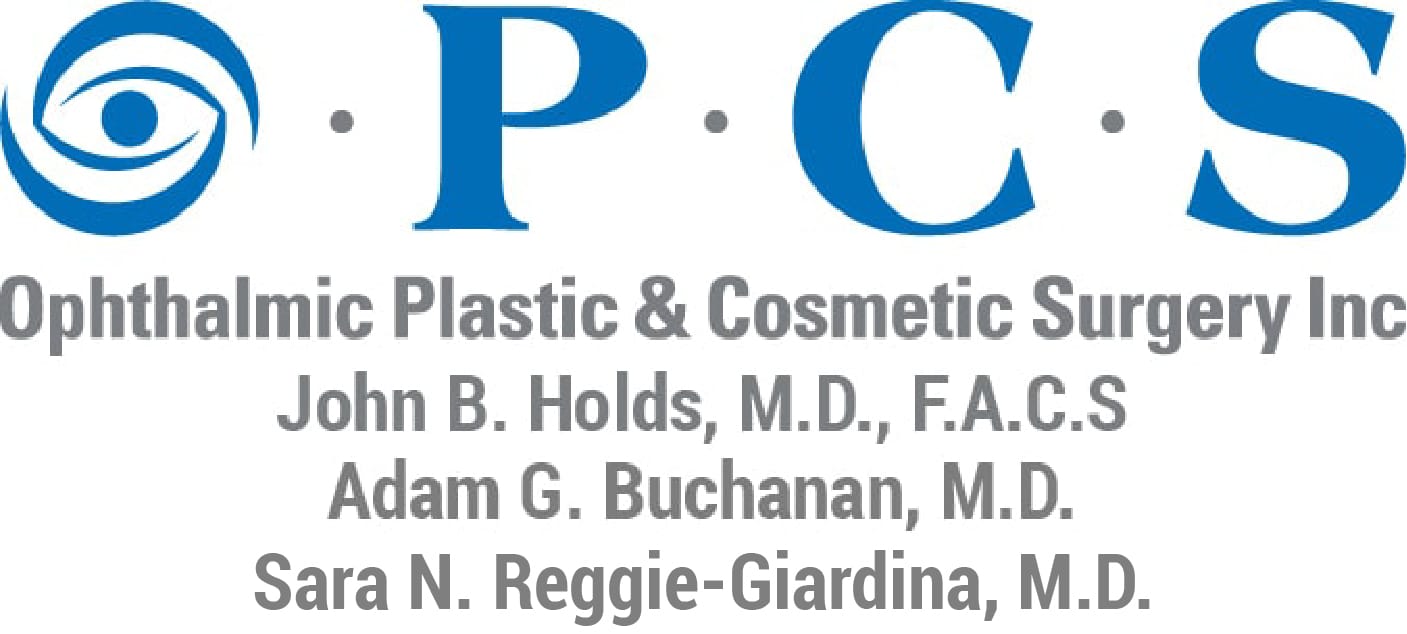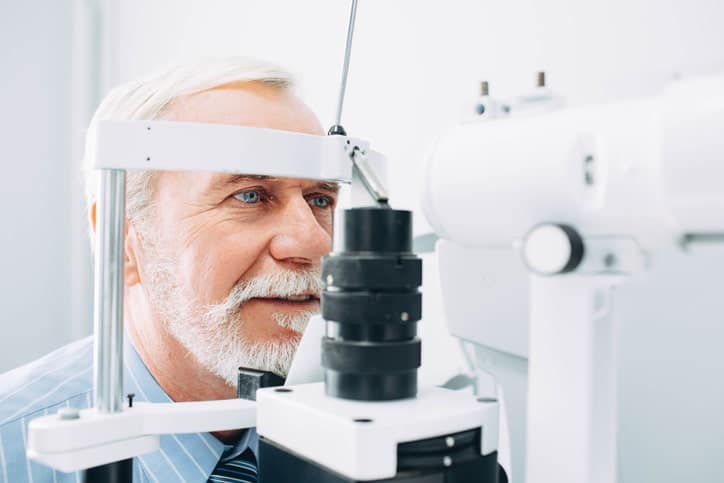Thyroid Eye Disease in St. Louis, And St. Peters, MO
What is Thyroid Eye Disease (Graves’ Disease)?
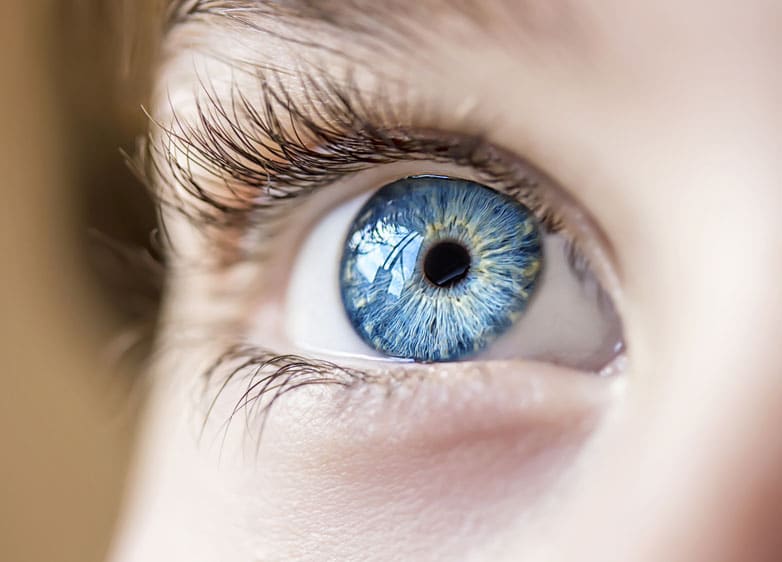
In the past, people had no choice but to accept the physical changes that came as a result of this unfortunate disease. Thankfully, the modern advancements in today’s medical and cosmetic surgery practices can give those suffering from Thyroid Eye Disease a brand new lease on life that otherwise would not have been possible before.
So if you’ve been recently diagnosed with Thyroid Eye Disease or have been living with it for some time now, you may be a qualified candidate for our orbital decompression surgery or eyelid retraction repair surgery in St. Louis, MO, right here at Ophthalmic Plastic & Cosmetic Surgery Inc (OPCS). These procedures can be conducted to restore a more normal eyelid appearance as well as better eye functionality.
What Is Thyroid Eye Disease (Graves’ Disease)?
Thyroid Eye Disease—also known as Thyroid Orbitopathy or Graves’ Disease—is caused by an autoimmune disorder that causes the body to attack and inhibit its own thyroid glands. This leads to the production of auto-antibodies that attack the structures and muscles surrounding the eyes, leading to inflammation and swelling. This can happen gradually over the course of weeks, months, or even years. However, it can also onset very quickly in some cases.
The bulging and swelling caused by the inflammation can contribute to the retraction of both the upper and lower eyelids, which can lead to a variety of other vision problems and an unfortunate change in one’s appearance. Other possible symptoms of Thyroid Eye Disease in St. Louis, MO, can include:
- Partial vision loss
- Disorienting double vision
- Complete vision loss in very rare cases
- Excessive tearing or dryness of the eyes
- Frequent eye irritation, pain, and redness
Thyroid Eye Disease (Graves’ Disease) Consultation
Thankfully, for those suffering from Thyroid Eye Disease in St. Louis and St. Peters, MO, aka Graves Disease, the fantastic team of oculofacial plastic surgeons here at OPCS can provide relief. Whether you need orbital decompression surgery, eyelid retraction repair surgery, or a combination of both, you’ll find exactly what you need to restore your natural appearance and full vision potential.When you arrive for your initial consultation, you will need to bring with you all of the following:
- Your general medical history
- Your history of prescribed medications
- Details of your thyroid-specific medical history
- Records of prior surgery, especially those on or near your face
Once that information is gathered and looked over, an examination is performed to get a better picture of your specific diagnosis. And from there, one of our board-certified ophthalmologists—as well as an ophthalmic plastic surgeon—will discuss with you the different treatment options available and will work together to create a tailored treatment plan that takes into account your individual needs.
Patient
Testimonial
“Dr. Holds is one of the few physicians who thoughtfully listens to patients’ concerns and discusses treatment options. Additionally, his office team is professional, pleasant, and accommodating – they work to schedule quickly and keep appointment times (minimizing in-office wait). Dr. Holds and his practice is a best-in-class experience. Thank you for the exceptional care.” – Carol
Thyroid Eye Disease (Graves’ Disease) Surgery
Eye surgery for those dealing with Thyroid Eye Disease is not immediately necessary. In most cases, it’s necessary to allow the disease to stabilize for anywhere between 6 to 18 months before considering surgical correction on an elective basis. This is because you cannot have surgery until after your disease has completed the inflammatory phase and has stabilized, as doing so before that time may lead to further complications.
When your oculofacial plastic surgeon decides that surgery is the best option for your individual case, they will discuss the risks of the procedure and make sure you understand what to expect before, during, and after your Thyroid Eye Disease surgery in St. Louis and St. Peters MO.
Orbital Decompression and Eyelid Retraction Surgery
Orbital decompression is a procedure that allows the eye to move back toward its normal, pre-Graves’ Disease position. During this procedure, fat behind and surrounding the eye and bones is carefully removed to reduce the pressure caused by the inflammation. However, orbital decompression comes with a handful of potential risks and complications. And as such, it is reserved strictly for the most severely affected patients—a very small percentage of those suffering from Thyroid Eye Disease in St. Louis and St. Peters, MO.
If orbital decompression isn’t necessary for your individual case, then eyelid retraction repair surgery is the next step. During this procedure, your surgeon will do their best to recreate the normal balance of the eyelids by making very precise incisions and sutures. This helps to reduce any exposure-related damage caused by Graves’ Disease, helping you look more natural and allowing for improved vision.
Note: All over-the-counter pain medications, fever reducers (except Tylenol), and non-steroidal anti-inflammatory drugs (NSAID) are off-limits for a week before eyelid surgery. Herbal medications, such as ginkgo biloba and St. John’s Wort, or high doses of fish oil, flax seed oil, or vitamin E, must also be avoided during this time.
Recovery From Thyroid Eye Disease Surgery
Once the surgery is a success, ointment will be placed in your eyes, and you will be able to go home the same day if you only need eyelid retraction repair surgery. However, you may need to stay overnight if you receive orbital decompression surgery.
Once the recovery process is in your hands at home, you will be asked to use artificial tear drops and an antibiotic ointment several times a day for about a week afterward. A mild to moderate painkiller is also occasionally needed and prescribed—in some cases, you may be given a prescription for antibiotic tablets to take if an infection is a risk.
You will probably experience some bruising and swelling for several weeks, but most people experience minimal discomfort and can return to work within two weeks. But once a week or two has gone by, one more visit with your surgeon will be necessary to confirm your success and take any further steps if needed.
Just see the difference Thyroid Eye Disease Surgery can make below!
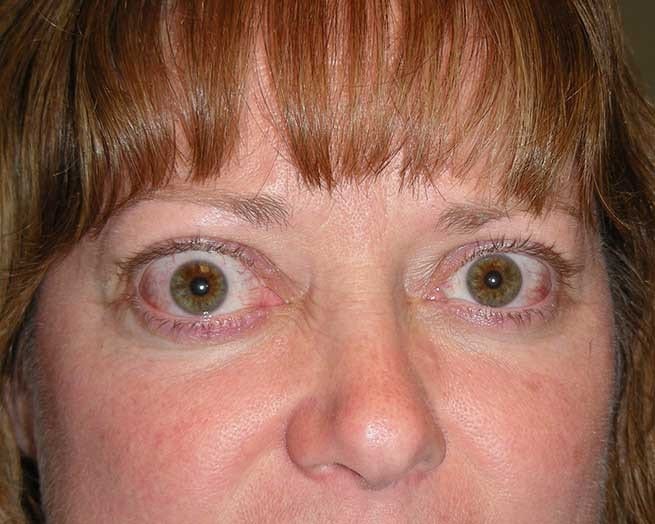
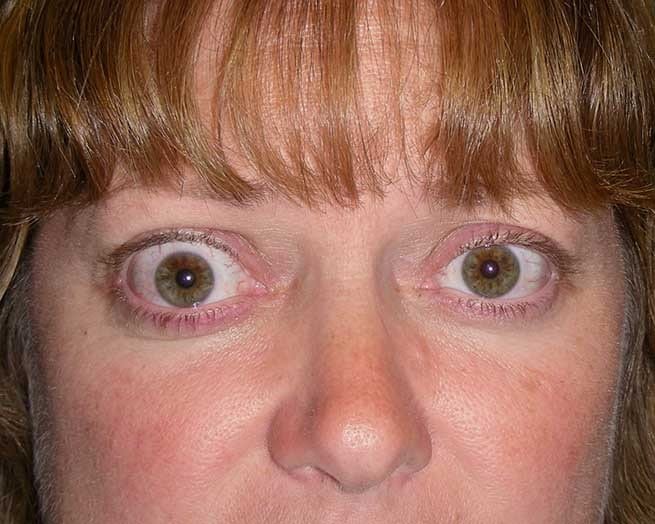
Schedule Your Consultation With OPCS Today
So if you have been recently diagnosed with Thyroid Eye Disease or it has finally become severe enough to consider surgery, it’s time to contact Ophthalmic Plastic & Cosmetic Surgery Inc for a consultation. Conveniently available at locations in St. Louis, St. Peters, and Arnold, MO, you’ll be hard-pressed to find a practice more knowledgeable and experienced with treating Thyroid Eye Disease. You can reach out to one of our plastic surgeons today at 314-567-3567 or by filling out our online contact form here.
